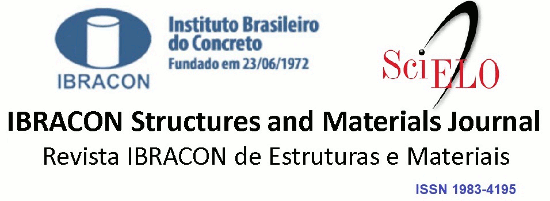Abstract
The present study evaluated the feasibility of the use of grinding dust (GD), a waste generated in the clutch disc finishing process, as a retardant additive in cementitious matrices. For this, the waste was added in contents of 5%, 10% and 15%, relative to the cement weight, and the setting time was determined by the Vicat method. In addition, the influence of this material on rheology (flow table, squeeze-flow and rotational rheometry) and on the physical-mechanical properties of the hardened matrices was analyzed. The results indicated an increase in setting time and a reduction in the fluidity of the mortars as a function of the addition of GD and the best results for the hardened state properties were verified for the cementitious matrices containing a 5% addition. Therefore, it was observed that GD is effective in retarding the setting time, presenting great potential for use in civil construction, without impairing its properties.
Keywords:
waste; grinding dust; retarding admixture; rheology; physical-mechanical properties.










